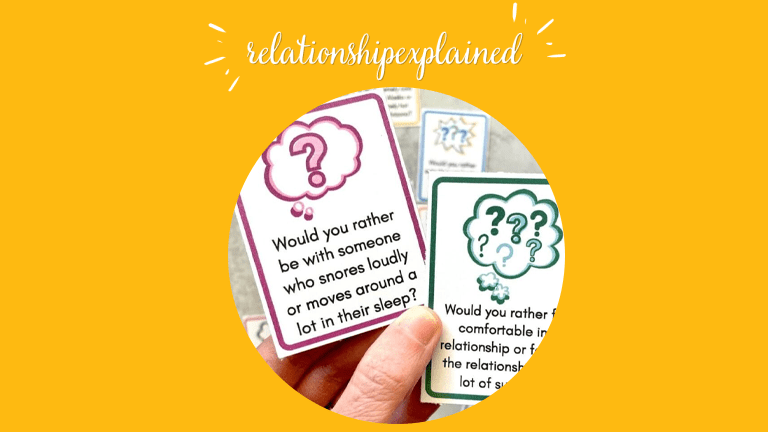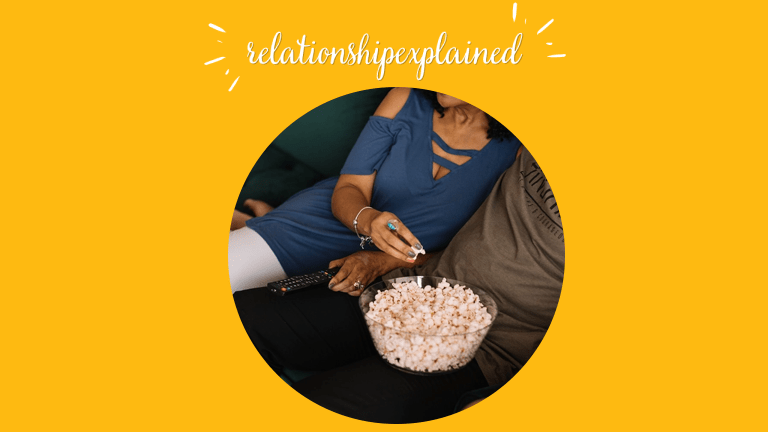How Do Guys Mark Their Territory In A Relationship
A guy may mark his territory through public displays of affection, grand gestures, and controlling actions. Dealing with such a possessive person includes setting boundaries, seeking support, and nurturing open communication. Remember your individuality, foster trust, and address insecurities. Balance mutual respect to create a healthier, more equitable relationship.
In the intricate world of relationships, an interesting dynamic often comes into play: the subtle ways guys express their attachment.
This blend of affection and protectiveness can evoke mixed feelings from women who experience it. Some may find it reassuring, while others might feel a tad suffocated. Straddling the fine line between endearing and overwhelming, this exploration delves into the art of how men sometimes mark their territory, sparking conversations about the balance between care and autonomy.
Join us as we unravel the subtle hints that reveal a deeper layer of emotional connection, shedding light on a common yet enigmatic aspect of relationships.
Nine Ways By Which Guys Mark Their Territory In A Relationship
1. Through Elaborate Public Physical Contact
A guy's behavior in public holds intriguing significance where romantic relationships are concerned. The simple act of intertwining fingers, his arm embracing you, or his proximity in group settings silently conveys a message – a subtle "hands-off" signal to onlookers, particularly his male peers.
This instinctual display reflects his protective instincts, a gesture of marking his territory, ensuring others grasp the undeniable connection between you two. In these shared moments, his possessive nature becomes evident, a nonverbal proclamation that you're under his care, solidifying the unspoken bond while adhering to the language of subtle gestures.
2. With Grand Public Gestures
In relationships, a guy's penchant for grand public gestures becomes a vivid portrayal of his emotions. Be it a heartfelt serenade or an elaborate surprise, he orchestrates these spectacles to showcase your special bond. This flamboyant display isn't just for show – it's a statement of his commitment, a declaration of your shared journey.
These acts, though captivating, can raise a flag of caution. His extreme possessiveness might fuel these gestures aimed at deterring other potential interests. Amid the applause, his motivation lies in publicly solidifying your relationship status and staking a claim that resonates with his guy friends and the world.
3. Insisting On Moving In Together Or Getting A Joint Pet
A guy marking his territory may zealously propose moving in together or adopting a joint pet. It's his way of publicly aligning your lives and asserting commitment. While this can signify mutual growth, it could also reveal an extremely possessive side.
His urgency to be on the same page might stem from a desire to control and solidify your relationship. By cohabiting or sharing a pet, he aims to showcase to the world that he's your guy, marking his presence while intertwining your paths.
4. Taking A Lot Of Photos Together
If he is a possessive man, he might insist on capturing shared photos and quire a few selfies, creating a digital album of your togetherness. Each image becomes a testament to his claim, reinforcing the notion that you're off-limits to other guys. This act extends beyond fond memories; it's a deliberate display of possession.
He seeks to imprint his presence in your visual narrative, signaling his territory with every click. With this, he sends an unspoken message to the world: you're his chosen companion, and he's assertively marking his territory, ensuring others recognize his place by your side.
5. Gifting You Personalized Jewelry
Personalized jewelry stands as a distinctive marker in romantic relationships. Most people exchange tokens of affection, but a guy who goes to great lengths to gift such jewelry is subtly staking his claim. It's not just about adorning a wrist or neck; it's a symbolic gesture, proclaiming the woman as his own.
Engraved initials or shared symbols hold a deeper meaning - a quiet assertion of their bond. Through these adornments, he weaves an unspoken narrative, announcing that he values her above all, marking his territory with a touch of precious metal and sentiment.
6. Leaving Marks
Love bites and physical imprints, often seen as affectionate gestures, can also reveal a primitive way of marking territory. When a guy leaves a love bite, he's engaging in a subtle act of asserting his presence through a visible mark. While some appreciate this display, it's important to distinguish between genuine affection and possessiveness.
For him, love bites might signal a longing to spend time together, a tactile reminder of closeness. As these imprints fade, they leave behind a silent proclamation – a unique balance between intimacy and the desire to mark his territory.
7. He Likes When You Wear His Clothes
In the intricate dance of relationships, clothing exchange becomes one of the most obvious ways a guy marks his territory. Sharing garments signifies a connection that extends beyond words. When he sees you wearing his clothes, it's a subtle yet potent declaration that you're intertwined in a unique bond.
This act resonates with an unspoken message – you're more than just friends; you're partners, and he wants other guys to recognize it. This exchange transforms his clothing into a tangible symbol of togetherness, solidifying his point and subtly reinforcing your shared relationship status to the world.
8. Introducing You As His Girlfriend Or His Woman
The most obvious way a guy begins marking his territory is by proudly introducing you as his girlfriend or his woman. These possessive pronouns carry subtle weight, subtly asserting his claim on you. It's a simple phrase, yet it can transform a casual introduction into a deliberate act of possession.
With those words, he defines his connection with you, signaling to the world that he's more than just a person in your life – he's your boyfriend. Thus, he is staking his claim in the relationship, and this vocal declaration is the starting point of his territorial instincts, setting the tone for a deeper bond.
9. Expecting Quick Responses
Expecting swift responses is a telltale sign that a guy is marking his territory in the relationship. When he anticipates quick replies, it's a subtle indicator of his interest and desire for constant connection. He yearns to be a prominent figure in your life, wanting to be the first person you talk to.
While this eagerness might stem from genuine affection, it's essential to discern between a healthy enthusiasm and possessiveness. The urgency for quick responses showcases his intention to mark his presence, positioning himself as a priority – a potential friend evolving into something more.
Dealing With A Territorial Guy
1. Remember Your Individuality
In the tapestry of a relationship, never forget your individual threads. While affection binds you to your boyfriend, it's crucial to retain your distinct essence. Embrace the truth that differing passions can coexist harmoniously, allowing each of you to flourish independently.
Your uniqueness contributes to the vibrant tapestry of your partnership, enriching it with diverse colors and textures. This mutual respect for individuality ensures that while you share a journey, you also nurture your personal aspirations and maintain the essence that drew you together in the first place.
2. Prioritize Self Care
Amidst dating challenges, prioritizing self-care is pivotal. Engage in activities that rejuvenate your spirit, from spending time with friends to talking openly with family. Embrace self-reflection and conversations that bolster your emotional well-being. By nurturing your own happiness, you fortify your resilience in dealing with possessiveness.
Remember, a strong relationship with yourself enhances your capacity to navigate challenges. Establishing this balance not only fosters personal growth but also contributes positively to the dynamics of your interactions, ensuring a healthier approach to addressing possessive tendencies in your relationship.
3. Consult Trustworthy People
In the realm of dating, navigating challenges requires a support network. Reach out to reliable friends, those who have your best interests at heart. Sharing your concerns and experiences with them can offer valuable insights and perspectives. As you confide in these trusted allies, their listening ears and objective viewpoints can help you discern whether your boyfriend's behavior crosses boundaries.
Discussing your feelings openly with friends can be empowering, providing you with a safe space to unravel complexities. Remember, you're not alone on this journey; friends can shed light on your path and provide a comforting hand to hold as you navigate the uncertainties of your relationship.
4. Establish Clear Boundaries
In dating, setting clear boundaries is a crucial sign of a healthy relationship. Communicate openly with your boyfriend about your comfort zones and limits. Express how you feel regarding personal space, interactions with friends, and any behaviors that may cause discomfort. A shared understanding of boundaries fosters mutual respect and cultivates trust.
Remember, these boundaries aren't meant to restrict but to ensure both partners feel secure and valued. As you establish these guidelines, you strengthen the foundation of your connection, allowing you and your boyfriend to navigate the relationship with a deepened sense of understanding and consideration.
5. Consider Professional Assistance
When grappling with complex relationship dynamics, involving a professional can be a transformative step. Consult a therapist to navigate challenges with the support of an impartial expert. A therapist offers a safe space for you, your partner, and even your family to engage in constructive conversations.
Through therapy, you can collectively explore the underlying causes of possessiveness, addressing root issues affecting your relationship. This proactive approach demonstrates a commitment to growth and a willingness to work together. By talking to a therapist, you equip yourselves with valuable tools to foster healthier communication and forge a more harmonious and fulfilling partnership.
6. Practice Assertiveness
Practicing assertiveness is a necessary course of action in many relationships. While watching over the delicate balance of partnership, standing up for your needs and preferences is crucial. Express yourself openly and respectfully, ensuring your voice is heard and valued.
Whether discussing concerns, suggesting alternatives, or setting boundaries, assertiveness empowers you and your partner to actively participate in shaping the relationship. Just as you post your desires and opinions, encourage your partner to do the same. This mutual exchange of perspectives strengthens the foundation, fostering a dynamic where communication flourishes, and mutual understanding deepens.
7. Limit Jealous Triggers
In the course of nurturing a relationship, it's essential to limit jealous triggers. Open communication helps establish a clear line between acceptable and unhealthy jealousy. Post candid conversations with your partner about what triggers feelings of jealousy and why. By understanding each other's boundaries and insecurities, you can collaboratively work towards minimizing those triggers.
It's vital to differentiate between natural concerns and possessive behaviors, ensuring jealousy doesn't cross the line into controlling actions. Through these discussions, you lay the foundation for a relationship built on trust and mutual respect, where both partners can navigate their emotions in a healthier, more balanced manner.
8. Consider The Relationship
When grappling with signs of possessiveness, it's crucial to consider the relationship as a whole. Take a moment to sit down and reflect on the dynamics at play. Analyze the extent to which possessive tendencies are impacting your connection. Recognize that dealing with possessiveness doesn't mean dismissing the relationship altogether.
By addressing these issues head-on, you can create positive change. Engage in open dialogues with your partner, sharing your observations and concerns. As you both work together to navigate these challenges, you may realize that addressing possessiveness can lead to a deeper understanding and a more fulfilling, harmonious relationship.
Conclusion
In the intricate dance of relationships, it's vital to notice the signs and listen to the subtle whispers of concern. Waiting for possessiveness to escalate isn't a path to tread. Acknowledging the boundaries and addressing them with your partner empowers the relationship to grow stronger.
Embrace open conversations, seek trusted counsel and practice assertiveness. Remember, you both are unique individuals with dreams and desires. You can sculpt a connection that thrives on trust, healthy communication, and shared growth through mutual understanding and respect. By addressing possessiveness, you're not just preventing issues but paving the way for a lasting, fulfilling partnership.













